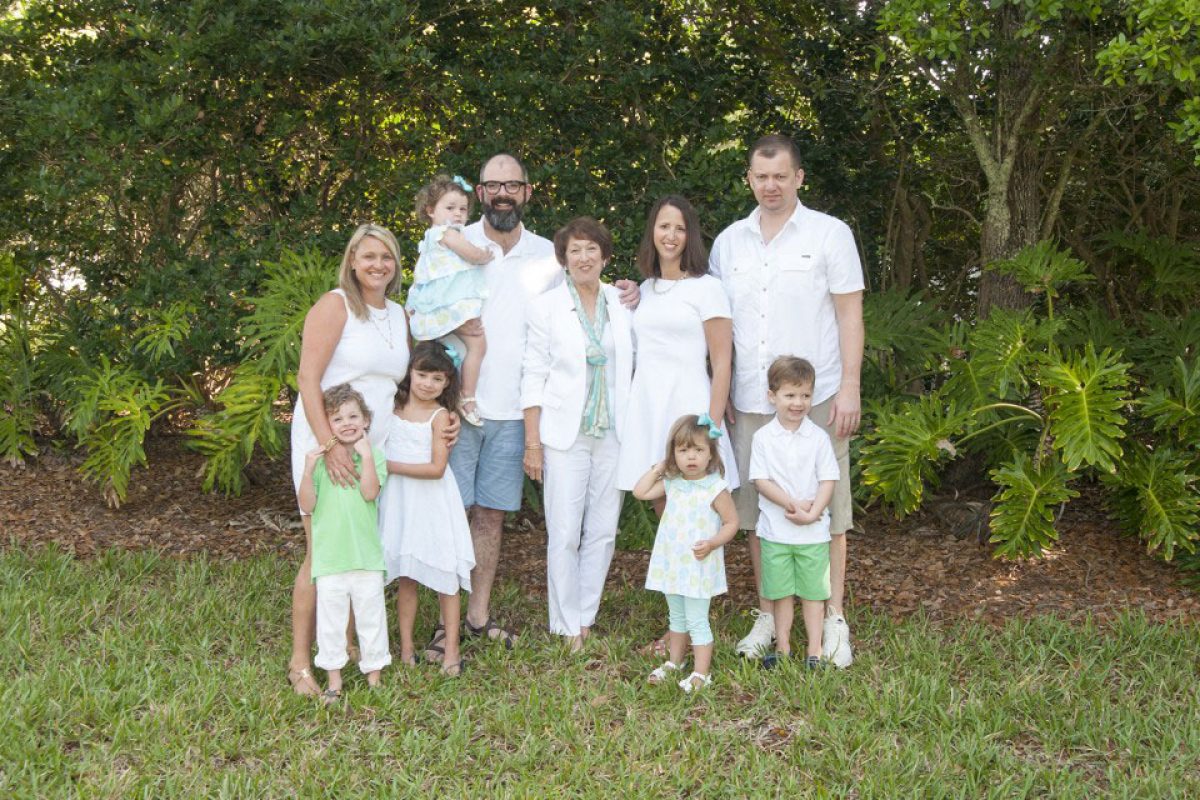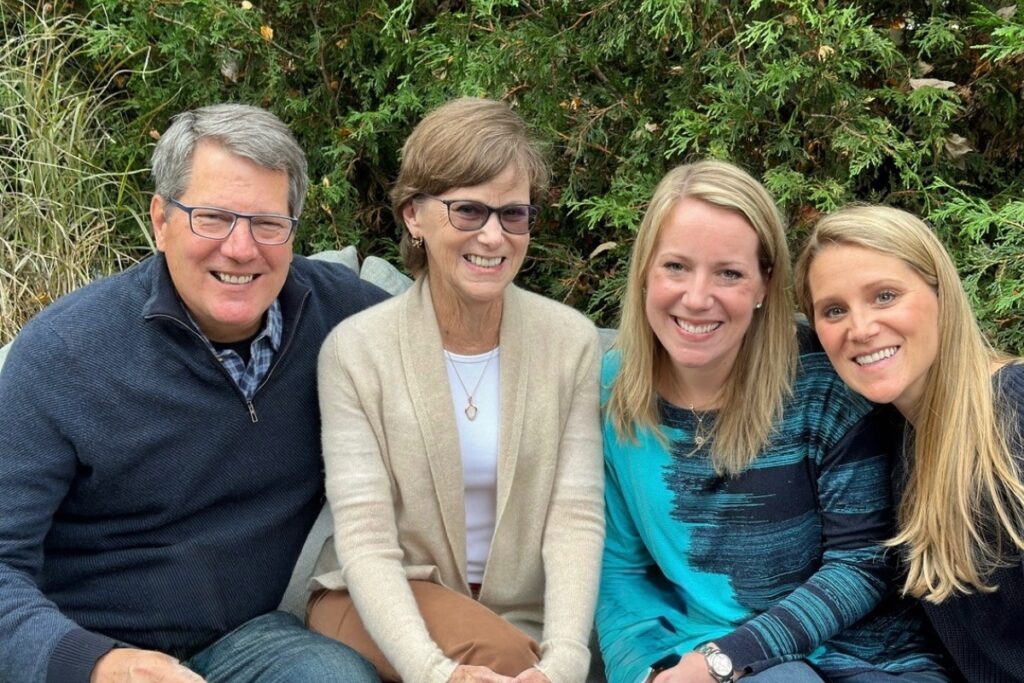The doctors Don Ullman consulted offered little hope. Decades earlier he’d been treated for cancer in his nasal cavity. Now it was back with a vengeance. “He was given three months to live, told to go home and write his will,” recalls Don’s wife Marilyn. That was before he found his way to UChicago. Here, radiation oncologist Daniel J. Haraf, MD, surgeon Elizabeth Blair, MD, and oncologist Victoria M. Villaflor, MD, administered intensive radiation to Don’s tumor along with chemotherapy. “Where others didn’t have a plan for saving his life, UChicago did,” says son Justin. The regimen gave Don, who passed away in 2013, four more years—time to welcome five grandchildren into the world.
The experience left a deep impression on the Ullmans. “We decided, ‘Let’s try to make a difference as a family,’” says Marilyn.
Earlier this year, Marilyn, Justin, his wife Diane Ullman, sister Suzanne Ullman Griffin and her husband Joe Griffin committed a substantial sum to the University of Chicago Medicine Comprehensive Cancer Center.
The gift will establish the Ullman Scholarship in Cancer Immunology and Ullman Fund in Cancer Immunology, supporting the University’s work in immunotherapy.
Immunotherapy recruits the immune system to fend off cancer as it would a virus. Hailed by Science in 2013 as the “breakthrough of the year,” it could be a game-changer—early immunotherapies have helped some patients with advanced cancers that defied other treatments. Under the aegis of professor of medicine and pathology Thomas F. Gajewski, the University has been a driving force behind this progress. Gajewski has made foundational contributions to understanding immune function and cancer. These include discoveries that could expand the pool of patients who benefit from immunotherapies.
The Ullmans are particularly enthused about the potential of immunotherapy to offer a gentler way to treat cancer. The therapy Don received afforded him precious time, but it was grueling—eventually leaving him blind.
“Our family has seen how devastating the side effects of chemotherapy and radiation can be,” says Suzanne. “Immunotherapy offers a path to improve quality of life for cancer patients.”
For Justin, the gift is an extension of his long-standing advocacy for cancer research at UChicago through the University of Chicago Cancer Research Foundation (UCCRF). At 39, he is already a UCCRF veteran. Juggling his workload as CEO of RhinoDox, Justin joined the foundation’s Associates Board for young professionals in 2003, serving for four years as its president. Currently, he is secretary of the UCCRF Board of Trustees.
His father instilled the importance of philanthropy and service early on, he says.
“It’s challenging for people my age taking a shot at their careers and starting families to commit to philanthropy, but Dad taught me philanthropy is a responsibility; something we owe society. He did a lot of volunteer work and quietly put his efforts toward many great causes.”
It’s a commitment the Ullmans consider a hedge against future cancer deaths. “One in two men and one out of three women will get cancer,” says Justin. “I think about that when we gather as a family. Cancer has already taken too many loved ones from us.”
At the same time the family is quite particular about where it directs its support.
“UChicago is a world-class institution,” says Justin. “For us, this is a horse race and at the finish line is a cure; we’re betting on the University of Chicago to get us there.”
“The University is on the cusp of something really exciting with its work in immunotherapy,” adds Marilyn. “I’ve never been able to think that way about cancer before.”
July 2015




